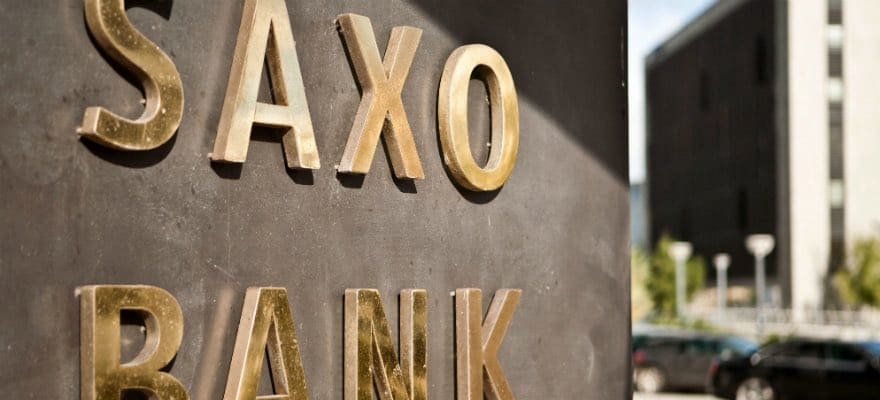Three weeks have gone by since the Brits voted in favor of leaving the European Union, and the immediate shock waves of the Brexit result are behind us. After plunging down, the British pound is recovering and the main indices of mainland Europe have been correcting the panic moves that occurred on the weekend of June 24.
With a new Prime Minister in Downing Street and uncertainty reflected in the high volatility across European markets, Finance Magnates asked some top industry CEOs for their predictions of the FX landscape in the short and long term in light of the UK's departure from the EU.
Drew Niv, FXCM:

Staying in London. Drew Niv, CEO, FXCM
The UK is one of the most important key markets for FXCM and that isn’t changing
“I cannot assure you about what the future holds with any great degree of certainty as I know it just as well as any of you, but what I can tell you is this, London will remain FXCM’s European headquarters where most of its staff will work. We are not abandoning the UK nor our people there. The UK is one of the most important key markets for FXCM and that isn’t changing. Specifically, London is one of the most important business hubs in the world and one of the most unique cities on this planet where a business like ours can thrive and find employees from one of the deepest talent pools.
As the war of words between European politicians escalates it’s getting a bit unnerving for people who worry about their future and their jobs. It’s important not to confuse this noise with any reality as it will all die down at some point and very little will change in our day to day lives.”
Glenn Stevens, GAIN Capital:

"Brexit creates an opportunity for traders." Glenn Stevens, CEO, GAIN Capital, Photo: Bloomberg
Short Term: “In the short term, Brexit creates an opportunity for traders. The uncertainty of what will happen in the UK following the Brexit vote is peaking traders’ interest and we are seeing higher client engagement as a result. This dynamic should continue through year end as the story unfolds and leading up to the US presidential elections in November.”
If FCA regulated firms lose the ability to market to clients across Europe, an FCA license may lose its allure
Long Term: “The long term implications of Brexit remain unclear for FX/CFD brokers operating out of the UK. If the UK stays in the EEA, we understand the passporting rights of UK regulated firms would remain intact and firms could continue to do business in EEA countries as they do today, without any local registration requirement. If the UK leaves the EEA along with the EU - and the right for current FCA registered brokers to offer services into the EU is not otherwise ‘grandfathered’ in connection with the UK's Brexit negotiations - UK brokers will need to set up operations in another EU country to access clients in the EEA. This will have a more significant impact on smaller brokers, due to the additional cost and complexity of managing operations under multiple regulators, as well as meeting each regulator’s capital requirements.
If FCA regulated firms lose the ability to market to clients across Europe, an FCA license may lose its allure for all but the largest firms. The FCA is a highly regarded regulator globally, but the UK is an expensive jurisdiction in which to operate and there are other viable options for brokers. For European clients, Brexit will mean less choice if they don’t have access to FCA regulated brokers.
Given GAIN’s position as one of the largest regulated UK brokers, we are committed to the UK market and intend to maintain a London presence and FCA authorization regardless of what happens around passporting.”
Finance Magnates' CEO Special Analysis of Brexit Prospects
Kobi Gur, Leverate:

"There are many experts that express opinions and their opinions are as good as any other." Kobi Gur, CEO, Leverate
Short term: “We will continue to see some volatility that will result in spikes according to the progress, or lack of it, with the discussions between the EU and Britain. As such, brokers will still be cautious. But, when the volatility calms we should see the market going back to business as usual. Since we are entering the summer vacation period, we may see rumors and the domestic leadership battles being the influencers on volatility.”
Long term: “Difficult to predict. Financially and economically wise, there are many experts that express opinions and their opinions are as good as any other. We should also watch how FCA regulation will react to other regulators in the EU and vice versa, but it is a small fraction of the full and wider picture of Brexit.”

"Clients will increasingly demand a multi-asset trading offering." Saxo Bank's CEO, Kim Fournais
Kim Fournais, Saxo Bank:
Short term: “We have seen record trading and I am glad that our clients in aggregate have been profitable despite difficult market conditions. Going into the referendum, we raised our margin requirements to protect clients and I am glad that this has proven to be the right approach. Market conditions have now stabilized and as of 06 July 14:00 PM GMT, we have reinstated default margin requirements.”
Long term: “The UK’s referendum on EU membership was a known unknown and we knew a British decision to exit the European Union was a possibility and this allowed us to prepare our clients for the resulting volatility accordingly. As we look longer term, the responsibility to provide a wide range of trading options and unbiased guidance around geopolitical and risk events that have the potential to affect markets will continue to become an integral component of a responsible offering to clients. And just as importantly, clients will increasingly demand a multi-asset trading offering that allows them to manoeuvre in any market condition and gives them the ability to be profitable in all market situations and economic cycles by trading multi-asset cash, OTC and/or listed derivatives.”
Ed Eger, OANDA:

Ed Eger, President & CEO, OANDA
Short term: “Quite simply, events like the Brexit are why our clients trade FX and CFDs on our platform. OANDA has always focused on having a technology platform and user experience which help clients maximize on these opportunities. Brexit represented the most recent one of those opportunities. I’m proud to announce that throughout the brexit trading session OANDA executed 100% of client orders with no rejections or requites—as we always do. And we were rewarded for our performance with a record-breaking day.”
Long term: “The longer term aftermath of the Brexit is unknown. It is said that it is easier to create the future than to predict it, but I will say that as policymakers in the UK and across Europe make important decisions, they will create trading opportunities for our clients around the world. This is what makes FX and CFD markets so interesting to trade.”
Charalambos Psimolophitis, FxPro:

Charalambos Psimolophitis, CEO, FxPro,
Source: FxPro
Short term: “We’re seeing increased volatility in FX markets, because there are clearly a lot of uncertainties still to be resolved between the UK and the EU. From that perspective, it’s a positive as clients are seeing more varied trading opportunities and not just on sterling.”
Long term: “Looking ahead, the focus will be on the regulatory environment, but I don’t see that changing dramatically. London is the world’s major financial centre and will likely want to remain in the MiFID even if not in the EU, as Iceland, Norway and Liechtenstein do. There will be no benefit from re-inventing the regulatory environment from scratch. In years to come, if the UK flourishes outside the EU, then others may follow, which would lead to new currencies to trade.”
Dennis De Jong, UFX:

Dennis De Jong, Managing Director, UFX
Short-term: "The effects of the Brexit have been dominated by high volatility. In terms of real estate, the sterling’s depreciation has led many foreigners to withdraw investments from UK real estate property funds. The mismatch between these withdrawals and the ability of the funds to finance that cash has led to a dangerous situation and the closure of many British property funds. On the other hand, some have benefited from the Brexit: those that produce their earnings in Pounds, but receive their sales in other currencies like the dollar, are moving up – such as FTSE100. It is not yet possible to know for how long these short-term effects will continue, given the overall unknown future of the aftermath of the Brexit."
Long term: "There is a good chance that GBP/EUR is heading towards parity, i.e. the pound will fall to equal value with the euro. This uncertainty within the banking sector could lead to the migration of certain banks and bankers from London to other European cities."
James Watson, ADS Securities:

James Watson, Managing Director, ADS Securities
Short term: “We’ve certainly seen some exaggerated levels of volatility in recent weeks, which is always appreciated by clients. Like everyone in the market, it will be no real surprise to learn that we’ve noticed an increase in trade volumes as a result, too. Looking ahead, we see the Brexit process as having the potential to serve up a whole series of news events that could trigger fresh bouts of volatility – although these are unlikely to be as pronounced as what we’ve seen over the last three weeks.”
Yes, our business may need to adapt, but we’re agile
Long term: “In the longer term, it’s what happens right across Europe that will be critical and there’s growing evidence that some real reform is needed if the EU is to hold together. Yes, our business may need to adapt, but we’re agile and innovations like our Prime of Prime offering will have an important role to play in terms of delivering Liquidity to other banks and brokers in London.”





















